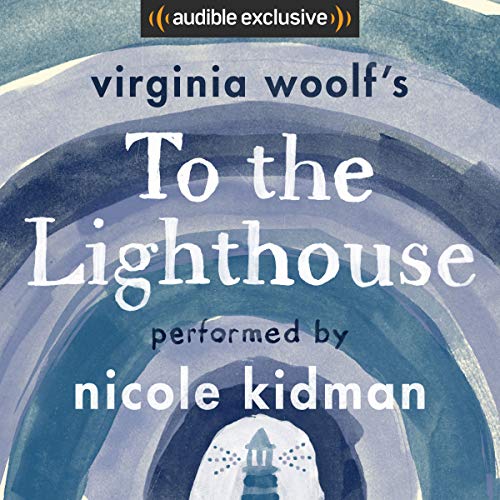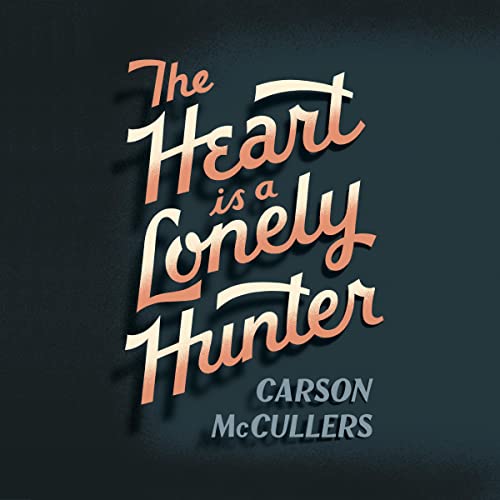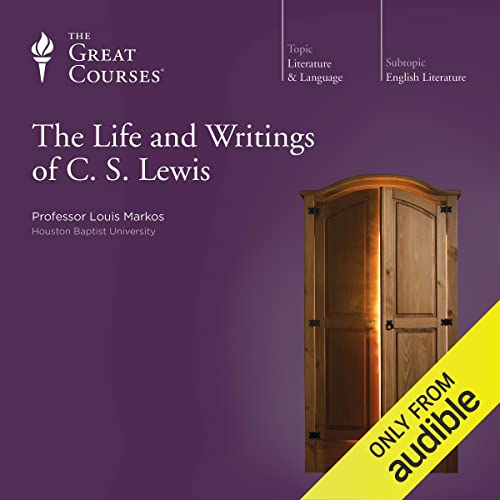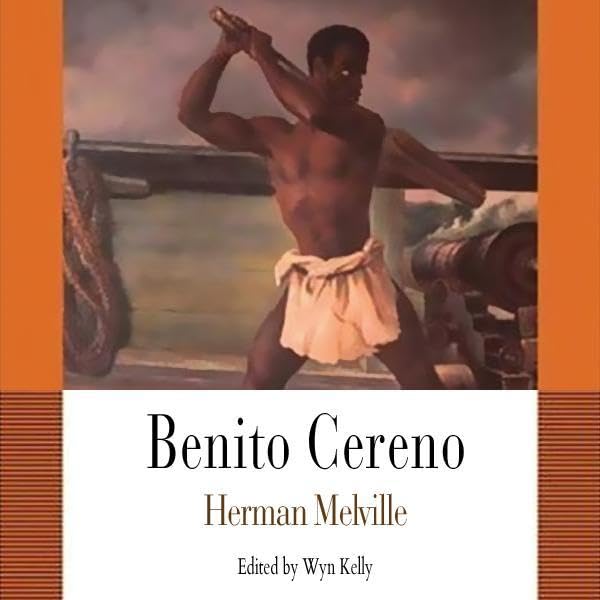Limited Time Offer
3 months free
- For a limited time, get Audible Premium Plus free for 3 months.
- Pick 1 audiobook a month from our unmatched collection—yours to keep (you'll use your first credit now).
- Listen all you want to thousands of included audiobooks, podcasts, and Originals.
- Auto-renews at $14.95/mo. after 3 months. Cancel online anytime.
Buy
 Preview
Preview A Room of One's Own
 Audible Audiobook
– Unabridged
Audible Audiobook
– Unabridged
A Room of One's Own, based on a lecture given at Girton College Cambridge, is one of the great feminist polemics. Woolf's blazing polemic on female creativity, the role of the writer, and the silent fate of Shakespeare's imaginary sister remains a powerful reminder of a woman's need for financial independence and intellectual freedom.
- Listening Length5 hours and 1 minute
- Audible release dateAugust 4, 2011
- LanguageEnglish
- ASINB005G0MAEI
- VersionUnabridged
- Program TypeAudiobook
 Read & Listen
Read & Listen
Switch back and forth between reading the Kindle book and listening to Audible audiobook.Add the audiobook for a reduced price of $7.49 after you get the Kindle book as part of your Kindle Unlimited subscription.
People who viewed this also viewed
People who bought this also bought
Only from Audible
Product details
| Part of series | Women Writers of the World |
|---|---|
| Listening Length | 5 hours and 1 minute |
| Author | Virginia Woolf |
| Narrator | Juliet Stevenson |
| Whispersync for Voice | Ready |
| Audible.com Release Date | August 04, 2011 |
| Publisher | CSA Word |
| Program Type | Audiobook |
| Version | Unabridged |
| Language | English |
| ASIN | B005G0MAEI |
| Best Sellers Rank |
|
Customer reviews
Customer Reviews, including Product Star Ratings help customers to learn more about the product and decide whether it is the right product for them.
To calculate the overall star rating and percentage breakdown by star, we don’t use a simple average. Instead, our system considers things like how recent a review is and if the reviewer bought the item on Amazon. It also analyzed reviews to verify trustworthiness.
Learn more how customers reviews work on AmazonCustomers say
Customers praise Virginia Woolf's writing style for its divine prose and remarkable facility with descriptive language. Moreover, the book is considered a must-read for anyone interested in women's studies, offering timeless insights into women and writing fiction. Additionally, customers appreciate its strong pacing and good visual presentation.
AI Generated from the text of customer reviews
Select to learn more
Customers praise the writing style of the book, noting its divine prose, remarkable descriptive language, and wit.
"...Her writing is excellent, but it is sad that the topic of women in the arts is still as relevant today as it was at that time...." Read more
"...Her message is simple (though the means is not), that women must have money (a fixed income) and a room of their own (privacy) in order to have the..." Read more
"...The essays are more accessible than I normally think of Virginia Woolf's writing as being...." Read more
"...This book is witty, from the first moment when the author tries to cross the lawn of an Oxbridge college and is stopped by a beadle because only the..." Read more
Customers find the book thought-provoking and consider it a must-read for anyone interested in women's studies, praising its insights about women and writing fiction.
"...As a man, it helped me further understand women’s history and the choices women in my life still face...." Read more
"...Overall, interesting and thought-provoking essay." Read more
"...Her essay is meant to encourage young women, to inspire them to create, as she's sympathetic to their plight...." Read more
"...Their central theme is women's rights, particularly those of women writers...." Read more
Customers find the book insightful and worthy of historical study, with one customer noting that its ideas remain relevant today.
"...So in one sense, this book offers a distilled, timeless essay worthy of historical study for decades, if not centuries, to come...." Read more
"Wonderful book and very important as a historical time capsule. Great intro to feminist literature and is not too long...." Read more
"...This is a book about Women and fiction. It is well researched and written with what I believe I can safely call a fanatical zeal. But gently...." Read more
"An important book that lies the ground for a better understanding and more empathy of why women where left behind in writing but also in other..." Read more
Customers appreciate the pacing of the book, with one noting how the complex thought guides the narrative through every twist, while another mentions how it flows without jumping from one idea to another.
"The first book I've read by Virginia Woolf, and I'm a fan. I like her pacing and use of language, the way she allows the reader to follows her..." Read more
"...fight and stand on their corpses' and souls' behalf", was so strong and so well versed." Read more
"...Great struggle, and amazing outlook to the feminist society...." Read more
"...Complex thought guides her through every twist and turn of her profound and unfolding ideas." Read more
Customers appreciate the visual style of the book, with one mentioning Woolf's distinctive writing style.
"It's not a classic for now reason. She is such a fluid writer, it's like beautiful...." Read more
"...Woolf's style and insights are extraordinary, her short critiques of classic authors are funny and unique...." Read more
"Excellent picture drawn of the history of allowing women to become educated, enter universities...." Read more
"...Enthralling, beautiful and wise. Read it." Read more
Reviews with images
DO NOT READ THE FOREWORD
Top reviews from the United States
There was a problem filtering reviews. Please reload the page.
- Reviewed in the United States on March 15, 2025Much as it’s hard to critique a William Shakespeare or a Mark Twain, it’s hard to critique Virginia Woolf. She pioneered women’s literature in the early twentieth century and helped lay its foundation for an incredibly successful, bustling marketplace in today’s world. Despite nagging misogyny, women writers receive deserved respect because of Woolf’s proposals to let women’s genius work. So in one sense, this book offers a distilled, timeless essay worthy of historical study for decades, if not centuries, to come.
In another sense, this work needs urgent study for today’s politics. Will women’s social progress continue? Will women’s minds continue to bear fruit for us all? Or will we indulge in circular arguments about their social roles – or even their inherent capabilities? Machismo culture is still rampant in some circles, and in today’s newspapers, those circles seem to be expanding, not retracting.
In this six-chapter essay, Woolf imagines what would have happened if Shakespeare had an equally brilliant sister. Would her brilliance had found its audience? Probably not due to social impediments. Wolf observed that such obstacles were decreasing the decades before 1929. Can women find meaningful tasks, which Woolf defines as a steady income and a “room of one’s own…” with a lock on it? She answered a resounding yes, and subsequent decades support her assertion.
In the century-or-so since Woolf’s essay, most Western societies have invested, albeit imperfectly, in women’s independence. We all have benefitted substantially from their social contributions that extend beyond caretaking and housekeeping. Yet women and men still waste too much energy fighting each other about their own social places, whether a domestic life is superior or inferior to a working life. Recently, many have rediscovered Woolf’s allusion to Coleridge’s “androgynous mind” in the form of gender fluidity. Perhaps reproductive roles isn’t as all-encompassing as some make them out to be; perhaps the reality of our lives is a lot more interesting than mere sex.
Therefore, this book is at once both a historical capsule and a living classic. As a man, it helped me further understand women’s history and the choices women in my life still face. As we approach its 100th anniversary, I humbly suggest it should still be read and pondered. Woolf broke a lot of barriers and earned a prominent place in history. Less obviously but more acutely, she can keep earning that place if we take the time to read this short work.
- Reviewed in the United States on February 4, 2025Format: KindleVerified PurchaseOnce you get your head synched with the archaic writing style where punctuation marks abound, the fits and starts they create in your thought processes soon immerse you into another time and place. It’s a misogynistic time to be sure, and Ms Woolf’s observations on the cause and effect of women finding their voice and men’s reactions to it are pause for reflection. You realize her words also hold up a modern mirror to how any established power structure reacts to any kind of uprising from the ‘underlings’. Taking another pause for further reflection, her words also afford you some universal glimpses into the very ephemeral fabric of reality itself.
If that’s too heady for you, no worries.
You also get to spend a few of Ms Woolf’s days with her going to lunch, the library, University, and shops. In short, I can see why this book has not fallen into obscurity. It has something for everyone.
- Reviewed in the United States on March 9, 2025Format: KindleVerified PurchaseI really did not know going in that this was an essay, so it took a while to warm to the book. Her writing is excellent, but it is sad that the topic of women in the arts is still as relevant today as it was at that time. Really, in order to do any of the arts, anyone needs money as a backing and the time to improve their skills. Overall, interesting and thought-provoking essay.
- Reviewed in the United States on September 8, 2008One cannot think well, love well, sleep well, if one has not dined well.
~Virginia Woolf, A Room of One's Own
Virginia Woolf's very intense A Room Of One's Own, is actually a long essay she wrote "with ardour and conviction" on the the topic of women and fiction, that she prepared when asked to speak about this subject at women's colleges. A Room of One's Own was published in 1929, when young women were still discouraged from attending college (due to genuine fear that a good education would make women unfit for marriage and motherhood), and although it's not angry in tone the essay reflects a society in which severe limitations were put on women and their achievements. Virginia Woolf speaks about the creative process that lead to her talks, of her notebook in which she recorded a multitude of ideas, thoughts, and mental meanderings, and writes about the train of thought that led to her conclusion, that "a woman must have money and a room of her own if she is to write fiction". In A Room of One's Own Virginia Woolf grapples with what is exactly meant by women and fiction (not a simple matter), and demonstrates and expresses the complexity of her thought in her trademark stream-of-consciousness writing. Defying conventions of the time, she talks about the actual food served at the luncheon party, of the soles and partridges and potatoes, and of the importance of food to the artist in a more general sense. She discusses numerous things in this full, layered essay of her thoughts, among them a sense of loss due to the war which began in August of 1914, that changed the underlying current of life--previously filled with music and poetry, with romance--and of the special difficulties women artists face (still relevant today!). Her message is simple (though the means is not), that women must have money (a fixed income) and a room of their own (privacy) in order to have the freedom to create, luxuries that men may take for granted. She imagines Shakespeare's "sister", equal in talent and genius, but because of her sex, never writes a word, never expresses her genius, never lives to old age because she takes her own life in quiet desperation. Her essay is meant to encourage young women, to inspire them to create, as she's sympathetic to their plight. In A Room of One's Own,Virginia Woolf wants the limitations removed, and for women to have the same intellectual freedom that men have had for centuries, so that they, too, may express their genius.
(This is a passage slightly modified from my blog about books, Suko's Notebook, suko95.blogspot.com, which I invite you to visit.)
Top reviews from other countries
 Gunjan MaheshwariReviewed in India on August 29, 2019
Gunjan MaheshwariReviewed in India on August 29, 20195.0 out of 5 stars An extraordinary read. Please read this book.
A Room Of One's Own by Virginia Woolf is an extended version of essays based on lectures she gave on Women and Fiction. It's straight, cut through feminists and so accurate.
Woolf has talked about Women in Literature from the time of Shakespeare and how a women couldn't write a play like he did but what's interesting, laughable and disturbing is that 21st century is not much different from 18th or 19th century in terms of women education as a whole. They are still not "required" to become an artist or an astronaut or a scholar. They don't "need" this in their life but only depend on their father or husband because women are defined by men. I mean it has been almost 200 years and we are still stuck in somewhat same situation in many parts of the world where men are still walking with their ego and exploiting women because they want to feel superior.
She clearly points this out, which is true to its core that not being dependent on a man for the basis needs opens up a whole new world with the liberty of asking questions without any second thoughts and being subjected.
Also, the last two pages just blew my mind. Woolf asks women to do something for themselves, make money, get a room of their own and stop making any kind of excuses because it is now the time to rise and stand for themselves.
Truth be told, I could have just highlighted the whole book. It might take a little time to adjust to her writing style but definitely go for this.
 A Room Of One's Own by Virginia Woolf is an extended version of essays based on lectures she gave on Women and Fiction. It's straight, cut through feminists and so accurate.5.0 out of 5 stars
A Room Of One's Own by Virginia Woolf is an extended version of essays based on lectures she gave on Women and Fiction. It's straight, cut through feminists and so accurate.5.0 out of 5 stars Gunjan Maheshwari
Gunjan MaheshwariAn extraordinary read. Please read this book.
Reviewed in India on August 29, 2019
Woolf has talked about Women in Literature from the time of Shakespeare and how a women couldn't write a play like he did but what's interesting, laughable and disturbing is that 21st century is not much different from 18th or 19th century in terms of women education as a whole. They are still not "required" to become an artist or an astronaut or a scholar. They don't "need" this in their life but only depend on their father or husband because women are defined by men. I mean it has been almost 200 years and we are still stuck in somewhat same situation in many parts of the world where men are still walking with their ego and exploiting women because they want to feel superior.
She clearly points this out, which is true to its core that not being dependent on a man for the basis needs opens up a whole new world with the liberty of asking questions without any second thoughts and being subjected.
Also, the last two pages just blew my mind. Woolf asks women to do something for themselves, make money, get a room of their own and stop making any kind of excuses because it is now the time to rise and stand for themselves.
Truth be told, I could have just highlighted the whole book. It might take a little time to adjust to her writing style but definitely go for this.
Images in this review
 Eylül ÖzbekReviewed in Turkey on March 13, 2025
Eylül ÖzbekReviewed in Turkey on March 13, 20255.0 out of 5 stars 😊😍
This book is very good. You should read it.
 Wendy ShortReviewed in Australia on October 15, 2017
Wendy ShortReviewed in Australia on October 15, 20175.0 out of 5 stars Inspiringly beautiful
A Room of One's Own is a genuine glory, flowing like water... sometimes enervating like gentle rain, sustaining like a deep slow stream in summer, other times challenging like oceans wave crashing on the cliffs of patriarchy. Yet never is Woolf angry, she disparages gently, clearly marking her belief in the difference between women and men. Welcoming the prospect of more genders. And steady throughout is her firm focus on the responsibility of women to write, to write as women true to women.
A timeless classic & encouragement
-
 こーいちReviewed in Japan on September 30, 2012
こーいちReviewed in Japan on September 30, 20124.0 out of 5 stars A Room of One's Own
バージニアウルフの作品ということで、期待して読みました。シェイクスピアに妹がいたというおもしろい着眼点に興味深く読んでいます。ただ、内容(語い)が難しく、なかなか進みません。
 MarianaReviewed in Brazil on March 17, 2025
MarianaReviewed in Brazil on March 17, 20255.0 out of 5 stars genial
genia





















































